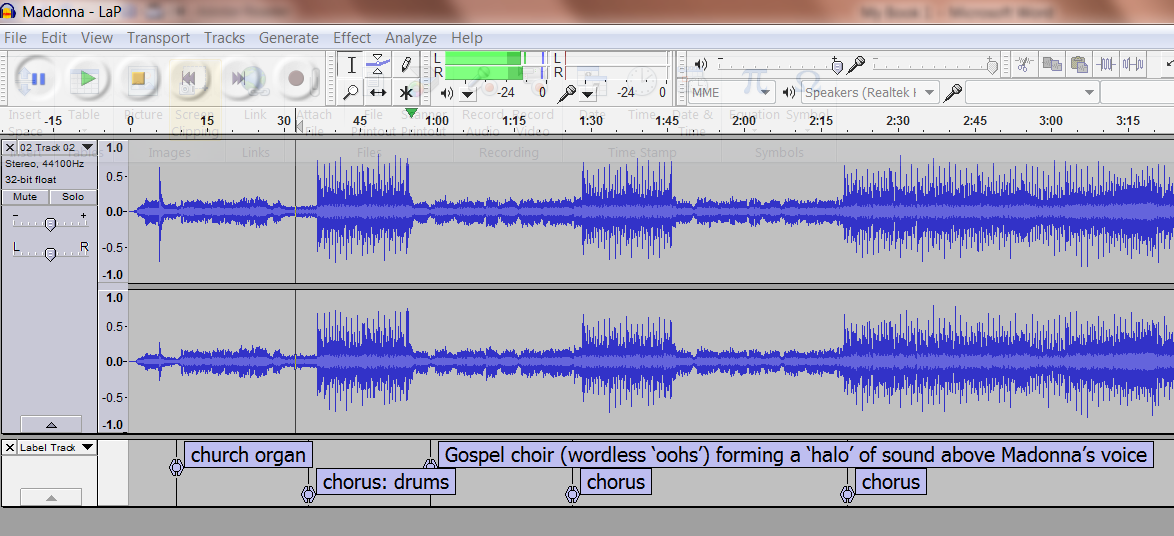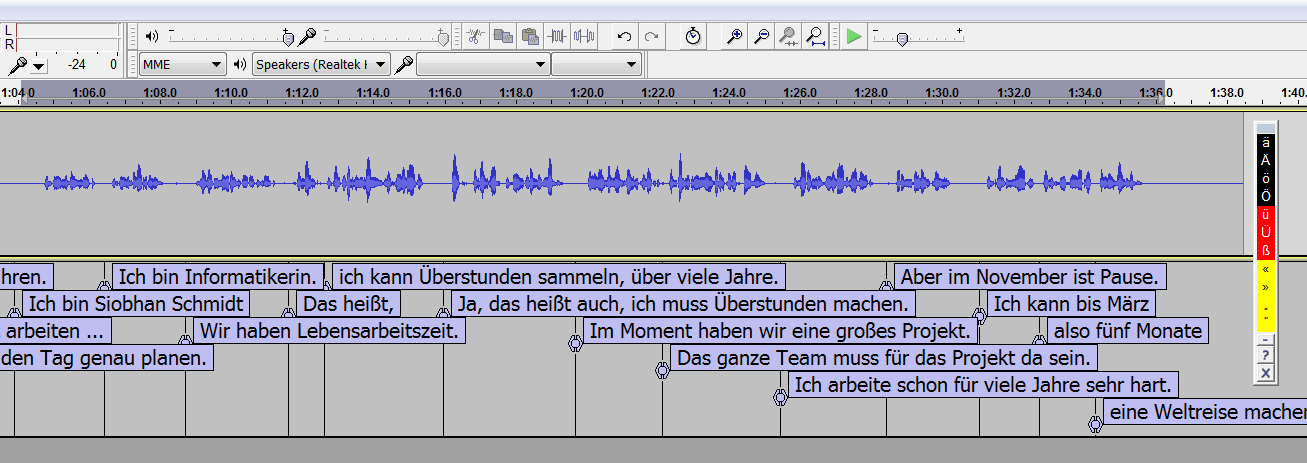[806]
My new panic fuelled strategy is to cut to the revision chapters, 5 and 10. This week it ground to a halt for personal (pronoun) reasons  .
.
Thema 9 - Übung 10.1
Verbtabellen (Fleer, 2009)
der Vater / die Väter – father
„Er ist mit 60 Jahren noch einmal Vater geworden.“ // He fathered another child at age 60
verstehen V/i., i., +Präp. (von), refl. verstand, hat verstanden – understand
verstehe, verstehst, versteht; verstehen, versteht, verstehen // Präsens
verstand, verstandst, verstand; verstanden, verstandet, verstanden // Präteritum
Versteht dein Vater dich gut?
Nein, mein Vater versteht mich nicht gut.
6 Das Pronomen (Fleer, 2011)
Pronomen dienen dazu, ein Substantiv zu vertreten. Es gibt vielfältige Formen von Pronomen. Manche können nicht nur als Pronomen, sondern auch als Artikel, das heißt zusammen mit einem Substantiv, auftreten:
Das ist mein Hund. Das ist meiner.
Dein Hund ist größer. Deiner ist größer.
Dieser Park gefällt mir. Dieser gefällt mir.
6.1 Das Personalpronomen (Fleer, 2011)
Formen
Singular Plural
1. Pers. 2. Pers. 3. Pers. 1. Pers. 2. Pers. 3. Pers.
Nom. ich du er es sie wir ihr sie/Sie
Akk. mich dich ihn es sie uns euch sie/Sie
Dat. mir dir ihm ihm ihr uns euch ihnen/Ihnen
Gen. (meiner) (deiner) (seiner) (seiner) (ihrer) (unser) (euer) (ihrer/Ihrer)
Die Kasus-Signale des Personalpronomens entsprechen weitgehend denen der Artikel.
Der Genitiv des Personalpronomens ist heute nicht mehr gebräuchlich.
6.4 Das Possessivpronomen (Fleer, 2011)
Die Possessiv-Formen mein, dein, sein etc. dienen dazu, auf den ‚Besitzet‘ einer Sache zu verweisen. Im Deutschen unterscheidet man Possessivartikel und Possessivpronomen.
Formen des Possessivartikels
% Der Possessivartikel richtet sich nach Person beziehungsweise. Genus des ‚Besitzers‘, die Endung kongruiert mit dem ‚Besitz‘.
|
|
Maskulinum
|
Femininum
|
Neutrum
|
Plural
|
|
1. Pers. Sing.
|
mein Text
|
meine Tasse
|
mein Buch
|
meine Fragen
|
|
2. Pers. Sing.
|
dein Text
|
deine Tasse
|
dein Buch
|
deine Fragen
|
|
3. Pers. Sing. m.
|
sein Text
|
seine Tasse
|
sein Buch
|
seine Fragen
|
|
f.
|
ihr Text
|
ihre Tasse
|
ihr Buch
|
ihre Fragen
|
|
n.
|
sein Text
|
seine Tasse
|
sein Buch
|
seine Fragen
|
|
3. Pers. Pl.
|
unser Text
|
unsere Tasse
|
unser Buch
|
unsere Fragen
|
|
2. Pers. Pl.
|
euer Text
|
eure Tasse
|
euer Buch
|
eure Fragen
|
|
3. Pers. Pl.
|
ihr Text
|
ihre Tasse
|
ihr Buch
|
ihre Fragen
|
|
|
Ihr Text
|
Ihre Tasse
|
Ihr Buch
|
Ihre Fragen
|
% Die Endungen des Possessivartikels kongruieren in Genus, Numerus und Kasus mit dem dazugehörigen Substantiv.
|
|
Maskulinum
|
Femininum
|
Neutrum
|
Plural
|
|
Nominativ
|
mein Text
|
meine Tasse
|
mein Buch
|
meine Fragen
|
|
Akkusativ
|
meinen Text
|
meine Tasse
|
mein Buch
|
meine Fragen
|
|
Dativ
|
meinem Text
|
meiner Tasse
|
meinem Buch
|
meinen Fragen
|
|
Genitiv
|
meines Text
|
meiner Tasse
|
meines Buch
|
meiner Fragen
|
Abschnitt 21
Bitte hören Sie und sprechen Sie.
Versteht dein Vater dich gut? // dein Mas., 2ps, N. (your) // dich 2ps, Akk. (you)
Does your Father understand you (singular)?
Nein, mein Vater versteht mich nicht gut. // mein 1ps, N., Mas. (my) // mich 1ps, Akk. (me)
Ja, mein Vater versteht mich gut.
Versteht ihre Mutter sie gut? // ihre Fem., 3ps, N. (her) // sie Fem., 3ps (her)
Does her Mother understand her?
Ja, ihre Mutter versteht sie gut.
Nein, ihre Mutter versteht sie nicht gut.
Verstehen deine Geschwister ihn gut? // deine 2ps, Pl.. (your) // ihn 2ps, M., Akk. (him)
Do your brothers and sisters understand him?
Nein, meine Geschwister verstehen ihn nicht gut.
Ja, meine Geschwister verstehen ihn gut.
Verstehen eure Lehrer euch gut? // eure M., N., 2pp (your teachers) // euch 2pp, Akk. (yous)
Do your teachers understand you (plural)?
Ja, unsere Lehrer verstehen uns gut. // unsere M., N., 3pp (our teachers) // uns 1pp, Akk. (us)
Nein, unsere Lehrer verstehen uns nicht gut.
Versteht deine Freundin dich gut? // deine Fem., N., 2ps (your) // dich 2ps, Akk. (you)
Does your girlfriend understand you?
Nein, meine Freundin versteht mich nicht gut.
Ja, meine Freundin versteht mich gut.
Verstehen deine Großeltern euch gut? // deine N, 2pp // euch 2pp, Akk. (yous)
Do your grandparents understand you (plural)?
Ja, meine Großeltern verstehen uns gut.
Nein, Meine Großeltern verstehen uns nicht gut.

 [365]
[365]
 [261]
[261]